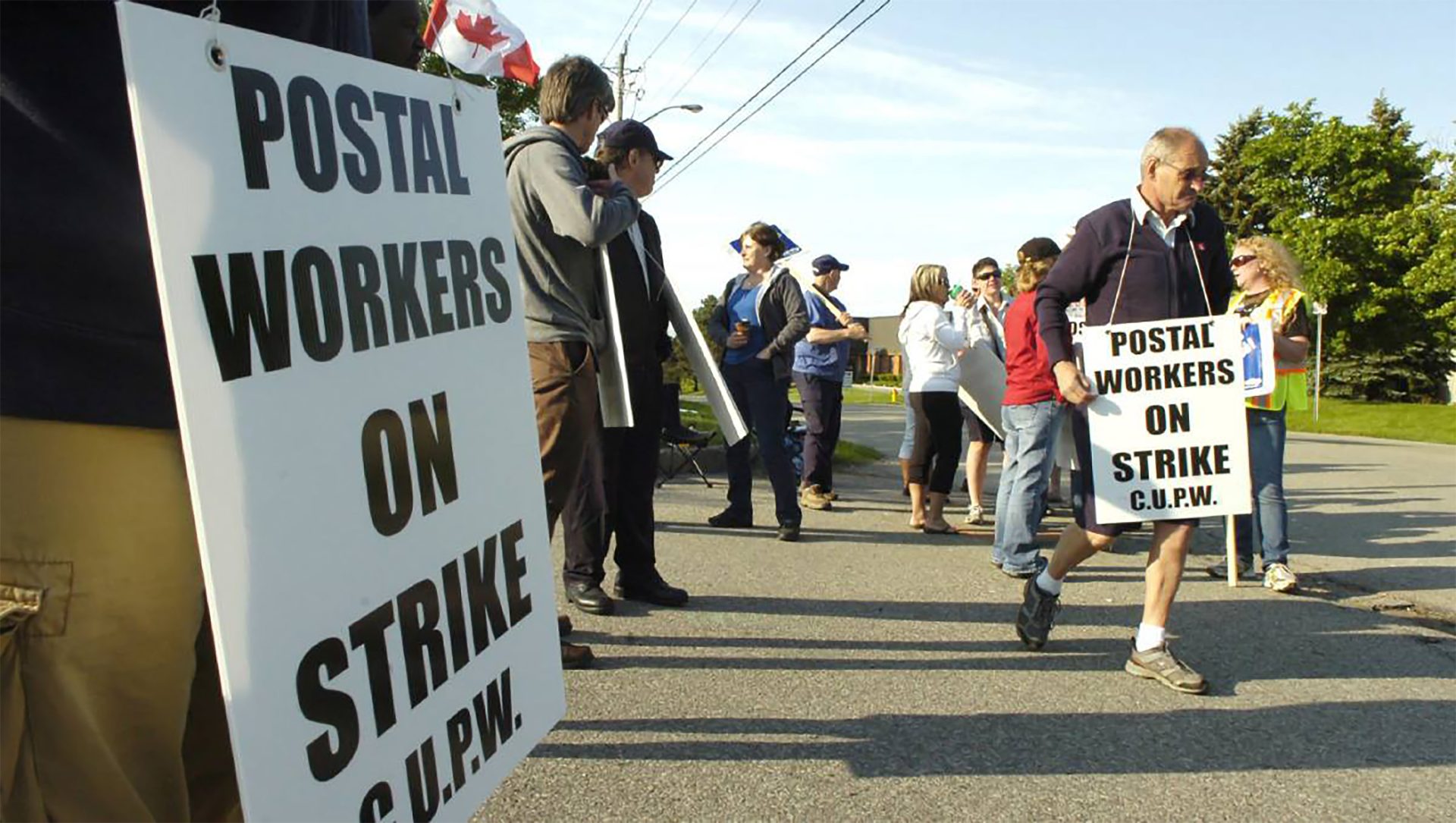
The Ontario Superior Court has recognized that the right to strike is not worth much in Canada. After nearly six years in the courts, the postal workers’ union has just lost its legal challenge against back-to-work legislation imposed by the Trudeau government.
In 2018, the Canadian Union of Postal Workers (CUPW) launched a rotating strike to fight against tiered wages and unsafe working conditions imposed by Canada Post. In response, Justin Trudeau’s federal government passed Bill C-89 to force binding arbitration and break the strike.
We explained at the time that the union had to defy this anti-democratic law, otherwise governments would continue to take away workers’ right to strike through back-to-work legislation as soon as a strike became too disruptive. And some union locals did try to stand up to the government.
But the union leadership took fright and did not defy. They agreed to return to work and instead chose to take the battle to the courts by challenging the law. They hoped to win the case due to a recent development in case law, with the 2015 Saskatchewan decision, in which the Supreme Court recognized the right to strike as part of the constitutional rights protected by the Canadian Charter of Rights and Freedoms.
We said at the time that this was a mistake. Taking a struggle to court means taking it out of the hands of the workers and into a channel that’s safe for the bosses. The courts are part of the bourgeois state apparatus, and ultimately serve the interests of employers.
And just as we predicted, six years of legal proceedings have come to nothing. The judge ruled that the challenge was “moot”—ie. whatever he decides would be irrelevant. Too much time has passed. “There is nothing left to consider, nothing left to remedy,” he said.
Now it’s too late. The damage has been done. The union shut down picket lines to go on a wild goose chase, while conditions for workers continued to worsen. The mood on the postal workers’ floor is one of anger at their unsafe working conditions and stagnating wages – after years of high inflation.
The Ontario Superior Court has thus admitted that the “constitutional right” to strike is worth very little. A government can impose a back-to-work order, and if workers challenge it in court, they’ll be dragged through one legal procedure after another for years, spending thousands of dollars in legal fees before finally being told there’s no remedy.
And this comes at a time when governments have no qualms about imposing back-to-work legislation. In the last 10 years, postal workers, longshoremen, construction workers, teachers and others have been subjected to back-to-work legislation.
The lesson here is clear, and all workers should learn it well. The legal system cannot be trusted. The law is written by the bosses’ servants, for the bosses. The so-called neutrality of the law is nothing but a sham. In the words of Anatole France, “The law, in its majestic equality, forbids rich and poor alike to sleep under bridges, beg in the streets and steal bread”.
The postal workers are currently preparing for a possible return to strike action in the autumn. They need to remember this lesson. The only way to defeat back-to-work legislation is to defy it.

